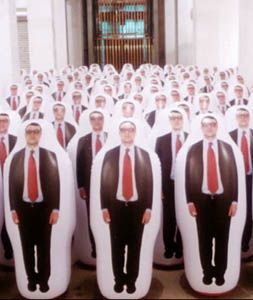Barking up the wrong (money) tree
@
12:11
•
education,
eudaimonia,
humanities,
life,
pessimism,
society
•
0
comments
![]()
Recently, someone asked, "Do the humanities have a future?" They certainly do have a future, but I'm not optimistic it would be something that I would consider to be good.
Not everyone thinks the same way, though. In the first place, their notion of what is good for the humanities is different. Some cite the proportionately higher numbers of humanities graduates employed in management roles as a sign that the humanities are in a good place. Others reporting less stellar outlooks note that someone with a humanities degree still tends to earn more than someone without a degree, and that when the economy picks up, questions regarding the future of the humanities will die down again as graduates have a much easier time finding work.
However, these seem to be rather odd things to say where the humanities are concerned. In modern society, common wisdom has it that education and industry should function symbiotically, with schools feeding industry with the manpower and skilled personnel that it needs. But the humanities often impart a very different worldview, one where human life is far richer than simply work life; one where the goal of learning is not just to make money or to become a useful cog in the industrial machine.
If one takes the lessons from the humanities seriously, then one would be quite ill-suited for the kind of life where economic concerns are to be privileged above everything else. One would therefore be at a disadvantage in an environment driven overwhelmingly by competition for economic advancement. Thus, someone who has a bad career progression in modern industrial society, or someone who is consumed by internal conflict, seems quite a natural product of education in the humanities today.
So if the success of the humanities is to be measured by society by how well their graduates are advancing themselves economically, then I'd say that the future of the humanities is bleak indeed. How can it be otherwise, when they are made to produce what they were ideologically never supposed to produce?

